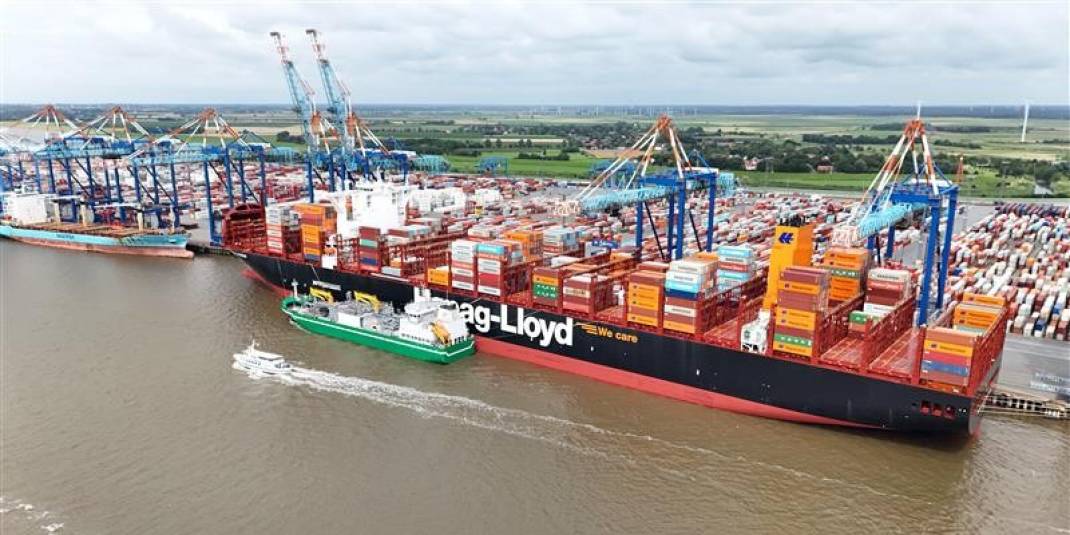Hapag-Lloyd Partners with Shell for Biomethane Supply

Hapag-Lloyd has entered into a multi-year agreement with Shell Western LNG B.V. for the immediate supply of liquefied biomethane, also known as Bio-LNG. This partnership builds on a strategic collaboration initiated in 2023, aimed at accelerating the decarbonization of marine fuels. The use of biomethane is a crucial element of Hapag-Lloyd’s goal to achieve net-zero fleet operations by 2045, significantly reducing emissions across its fleet and aiding customers in their own decarbonization efforts.
Commitment to Decarbonization
The agreement marks a significant step in Hapag-Lloyd’s commitment to sustainability. By incorporating liquefied biomethane into its operations, the company aims to enhance fuel reliability while minimizing environmental impact. Jan Christensen, Senior Director of Global Fuel Purchasing at Hapag-Lloyd AG, emphasized the importance of this collaboration, stating, “This agreement helps secure the fuel certainty and supply reliability we need to further expand the use of waste-based renewable fuels across our fleet.” He highlighted that using lower-emission fuels available today is essential for true leadership in the shipping industry.
Shell has expanded its offerings to include liquefied biomethane at 22 strategic locations within its global LNG bunkering network since 2024. Dexter Belmar, Shell’s Vice President of Global Downstream LNG, noted that Bio-LNG is now a tangible solution for shipping decarbonization. He stated, “These long-term deals help build the confidence needed to scale renewable fuels.” The biomethane supplied to Hapag-Lloyd is ISCC EU certified, ensuring the sustainability of its production and traceability throughout the supply chain.
Seamless Transition to Renewable Fuels
Biomethane serves as a drop-in fuel, allowing Hapag-Lloyd’s LNG dual-fuel vessels to transition to renewable energy without requiring any modifications to existing equipment. This fuel is derived from the decomposition of organic waste, including crop residues, livestock manure, and food waste. The process involves upgrading biogas by removing CO₂ and impurities, after which the liquefied biomethane is integrated into the local gas grid and supplied to ships on a mass-balanced basis.
This innovative approach not only supports Hapag-Lloyd’s decarbonization strategy but also aligns with broader industry efforts to reduce emissions and promote sustainability in maritime operations. As the shipping sector continues to evolve, partnerships like this one are crucial for paving the way towards a greener future.
